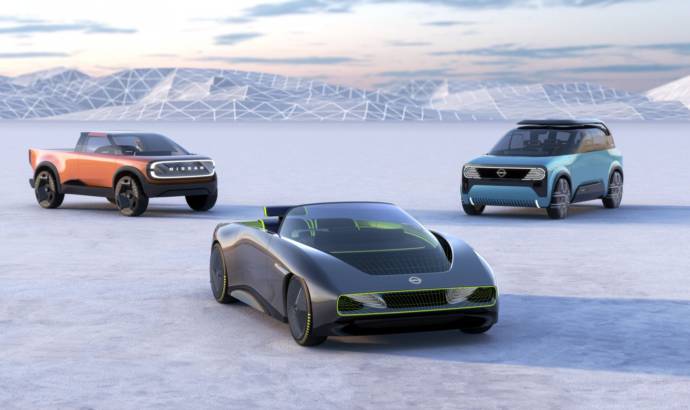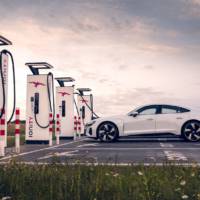Nissan is showing us a glimpse of its future with the unveil of a new plan to develop its electric cars. The plan is called Ambition 2030 and reveals a list of four concepts.
Over the next ten years, Nissan will deliver exciting, electrified vehicles and technological innovations while expanding its operations globally. The vision supports Nissan’s goal to be carbon neutral across the life cycle of its products by fiscal year 2050.
As a pioneer of electric vehicles (EVs), Nissan has democratized EVs and invested in building charging infrastructure and energy management. By placing electrification at the core of the company’s long-term strategy, Nissan Ambition 2030, the company aims to accelerate the electrification of its vehicle lineup and rate of technology innovation with investments of 2 trillion yen over the next five years.
Based on customer demands for a diverse range of exciting vehicles, Nissan will introduce 23 new electrified models, including 15 new EVs by fiscal year 2030 aiming for an electrification mix of more than 50% globally across the Nissan and INFINITI brands.
Nissan aims to launch EV with its proprietary all-solid-state batteries (ASSB) by fiscal year 2028 and ready a pilot plant in Yokohama as early as fiscal year 2024. With the introduction of breakthrough ASSB, Nissan will be able to expand its EV offerings across segments and offer more dynamic performance. By reducing charging time to one-third, ASSBs will make EVs more efficient and accessible. Further, Nissan expects ASSB to bring the cost of battery packs down to $75 per kWh by fiscal year 2028 and aims to bring it further down to $65 per kWh to achieve cost parity between EV and gasoline vehicles in the future.
Nissan seeks to establish a global battery supply system to meet growing customer vehicle demand and support the growing number of EVs in use. Working with its partners, Nissan intends to increase its global battery production capacity to 52 GWh by fiscal year 2026, and 130 GWh by fiscal year 2030.



